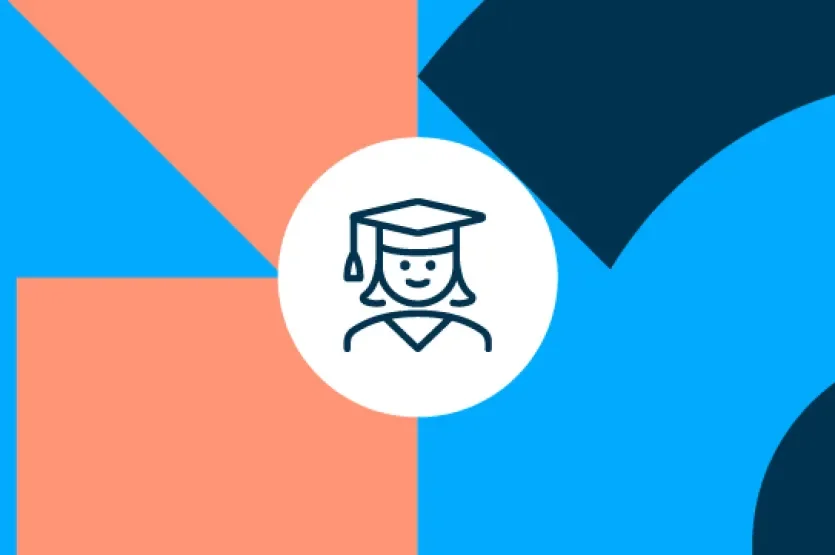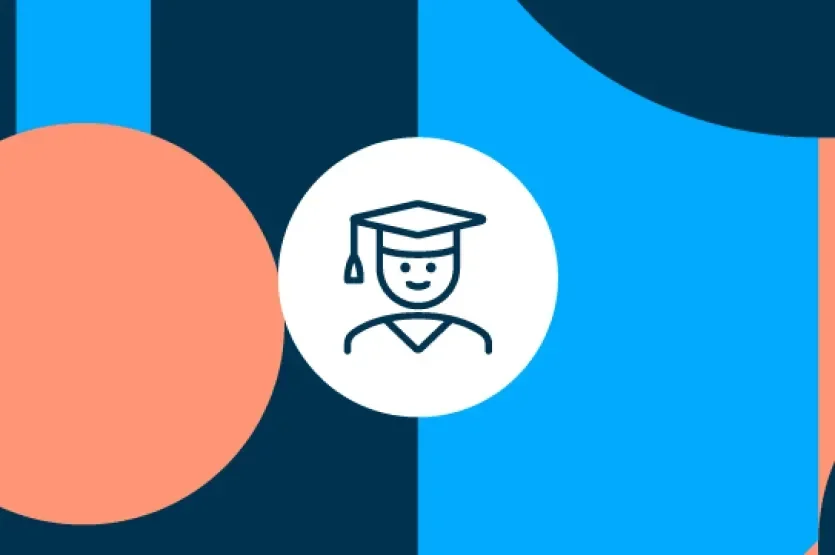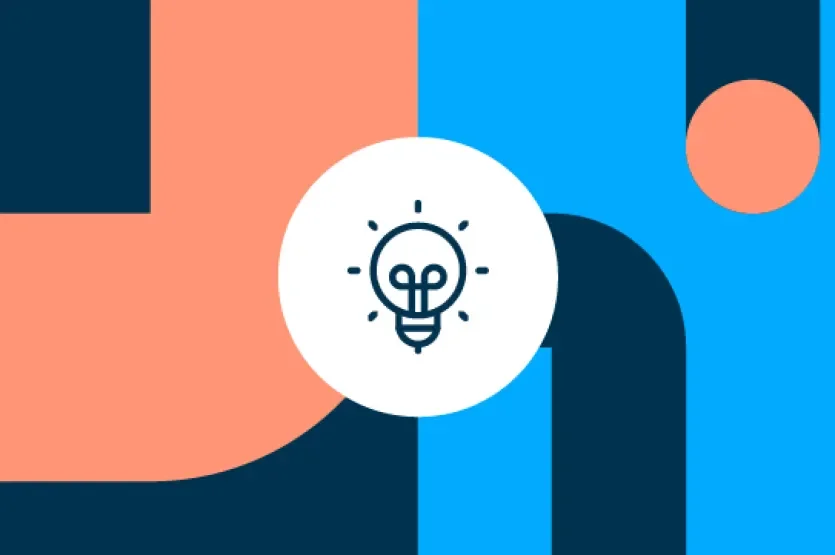Overview
With 30 taught modules to select from, the programme is highly flexible and allows participants to design their Master's programme to match their chosen career specialisation. Students may opt for the General Masters programme, offering maximum flexibility of module choice, or take the option of specialising in one of the following Majors:
Major in the Internet of Things (IoT)
Imagine a world where everyday objects are connected to the internet, enabling seamless communication between people and things, and even between things themselves. With over 50 billion devices projected to be connected by 2025, the Internet of Things (IoT) will rapidly become an essential part of our lives.
During this course, you will delve into the exciting realm of IoT and explore its vast potential. We will explore the limitless possibilities of a hyper-connected world and shape the future of technology with innovation, intelligence, and impact. Our curriculum is designed to help you develop a strong foundation in the principles and technologies of IoT. You’ll have the opportunity to explore various IoT applications, ranging from agricultural to healthcare, and gain hands-on experience with different hardware platforms.
With a focus on both theoretical and practical learning, our programme will provide you with the necessary tools to create innovative solutions in the IoT ecosystem.
Major in Image Processing & Analysis (IPA)
During this course, you will delve into the intricacies of image and video analysis, a core skill that is driving much of the recent AI advances in leading multinationals and innovative start-ups. This highly sought-after skill set is essential for professionals in various industries, including remote sensing, autonomous driving, medical image analysis, pose detection, security-based applications, and automated disease detection.
With the increasing use of image and video data in industry, the demand for professionals skilled in this area has never been higher.
Major in Nanotechnology & Photonics (NTP)
Throughout the last few years, photonics has emerged as a prominent interdisciplinary field that focuses on the transport and manipulation of light. Its rapid progress is attributable to advances in nanotechnology, materials science, optics, and physics, among other areas.
The study of nanotechnology has also become increasingly important, thanks to advancements in modern science. Nanotechnology deals with engineering at the nanoscale with a view to creating applications/ devices at the atomic, molecular, or supramolecular scale. Research in this field is gaining progressively more interest due to its growing importance in various scientific and industrial application areas, such as biomedical engineering, telecommunications, and aerospace.
By studying a master's in Nanotechnology and Photonics, you will become part of a field that is foundational for all sectors of the economy
Major in Data and Telecommunications Networks (DTN)
In today's rapidly evolving digital landscape, the demand for skilled professionals in the field of data and telecommunications systems has never been more pressing. This comprehensive masters degree equips graduates with the cutting-edge expertise required to drive the next generation of networking technologies, from wireless and mesh networks to peer-to-peer and sensor-based systems.
Graduates of this programme will gain a deep, cross-disciplinary understanding of network operations, empowering them to implement innovative protocols and design high-performing, future-ready infrastructures. As the world increasingly embraces Industry 4.0 and the convergence of computing, communication, and control, this specialised knowledge will be invaluable.
Employers across a wide range of industries are actively seeking engineers with the skill set this program provides. Graduates will be well-prepared to tackle the grand challenges facing wireless communications, from delivering ultra-high data rates to enabling seamless, ubiquitous connectivity.
Whether your passion lies in cutting-edge wireless technologies, the intricacies of network design, or the optimization of end-to-end network performance, this program promises to provide the knowledge and skills necessary to excel in this rapidly evolving field.
Why DCU
DCU People
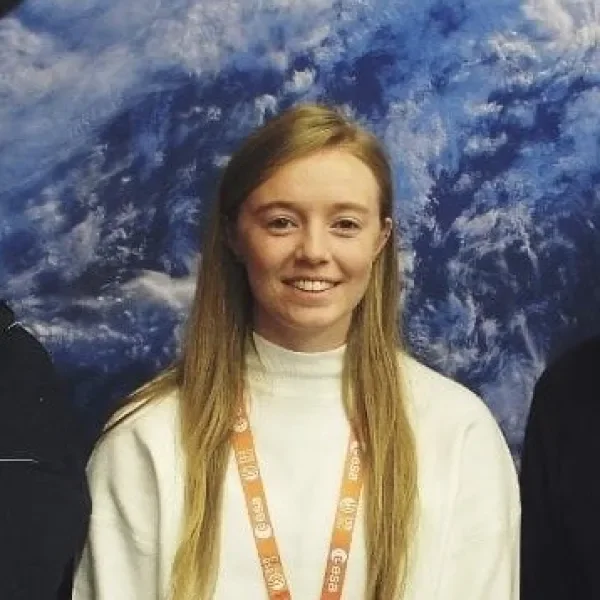
I chose this course because I wanted to further my knowledge of networking systems, particularly in optical and radio communications.
Read more about Niamh McDermott
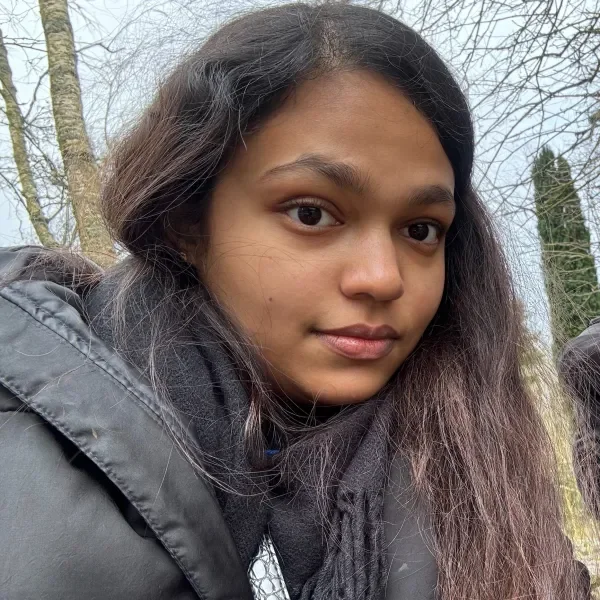
I am Dona, and I’m a postgraduate student in electronic and computer engineering majoring in nanotechnology and photonics.
Read more about Dona Dilini Manushi Wijetunge Arachchige

Embarking on the MEng in Electronic and Computer Engineering at DCU with a specialisation in Advanced Data Networks has been a game-changer for me.
Read more about Anuja Bulathsinhalage

From early school-leaver to playing a key role on one of the world’s most complex building projects, Paul Sheridan’s journey has not been a conventional one.
Read more about Paul Sheridan
Careers & Further Options
Careers
The focused nature of the majors, combined with the continued growth of these important and very successful Irish industrial sectors, will ensure that you are in a pole position to gain employment in a wide range of industries in Ireland and overseas. Graduates of this course work in a wide range of industries, including:
-
Information Technology
-
Manufacturing and Industry 4.0
-
Healthcare
-
Smart Cities and Urban Planning
-
Agriculture
-
Energy and Utilities
-
Retail
-
Automotive and Transportation
-
Environmental Monitoring
-
Smart Home and Consumer Electronics
-
Finance and Insurance
-
Telecommunications
-
Education
-
Entertainment and Media
-
Space and Aerospace
-
Consulting and Entrepreneurship
Graduates of this course have gained employment as a:
-
Network Engineer
-
Network Administrator
-
Network Architect
-
Systems Engineer
-
Wireless Network Engineer
-
Telecommunications Engineer
-
Network Software Developer
-
IoT Developer/Engineer
-
Project Manager
-
Product Manager
-
Security Specialist
-
Data Scientist
-
Consultant
-
Business Analyst
-
Researcher
Our graduates have gone on to successful careers in leading companies including NASA, Apple, Samsung, Intel, Dell, Amazon, Meta, and Google.
Others have progressed to PhD research and gained further advancement and recognition.
Entry Requirements
General Entry Requirements:
• A Primary Honours degree, Level 8 with an award of H2.2 or higher in Electronic/Electrical/Computer Engineering, Applied Physics, Computer Sciences or other Engineering Disciplines
• International candidates who are non-native speakers of English must satisfy the University of their competency in the English language. More information about DCU's English language requirements can be found here: http://www.dcu.ie/registry/english.shtml.
Please note if you are a non EU student and require a study visa, you are not eligible to apply for part-time programmes as study visas are only granted for full-time programmes.
Programme Structure
This highly flexible course allows students to study part-time or full-time. We have two intakes per academic year, September and January. Full-time students beginning in September may complete the programme in 12 months. Full-time students beginning their studies in January may complete in 18 months.
Flexible study options are also provided for part-time students. Students can complete this course in 2 - 4 years and can decide how many modules per semester and academic year they take. They can study on-campus or remotely but will be required to attend campus for examination purposes and a small number of laboratory exercises for some optional modules. An alternative Masters Qualifier entry path is available for EU-status students who do not meet the Masters programme entry requirements.
Our General masters award structure gives students the flexibility to choose a combination of any eight taught Modules from our full offering. In this way, students can truly tailor their own Masters programme. Students must also complete a substantial capstone project to achieve the overall award.
With our pre-defined Majors, students have the option of specialising in one of four different areas. Our Major options set out four “core” modules that must be completed to achieve the specialisation. While we recommend a complementary optional modules for each Major (see here), we offer flexibility so that these modules can be tailored to suit the needs of each individual student and their previous education. Students must also complete a substantial Major-specific capstone project to achieve the overall award.
Major in the Internet of Things
- Data Analysis and Machine Learning II
- Real-Time Digital Signal Processing (DSP)
- Connected Embedded Systems
- Network Stack Implementation
- Masters Project – IoT Major
Plus any other four modules
Major in Image Processing and Analysis
- Data Analysis and Machine Learning II
- Real-Time Digital Signal Processing (DSP)
- Entrepreneurship for Engineers
- Computer Vision
- Masters Project – IPA Major
Plus any other four modules
Major in Data and Telecommunications Networks
At least four of the following core modules:
- Network Performance
- Photonic Devices
- Data Analysis and Machine Learning II
- Photonic Applications and Technologies
- Future Network Architectures
- Network Stack Implementation
- Masters Project – DTN Major
Plus additional options, to make up a total of 8 taught modules.
Major in Nanotechnology & Photonics
- Nanoelectronics Technology
- Photonic Applications and Technologies
- Photonic Devices
- Device Manufacturing
- Masters Project – Nano & Photonics Major
Plus any other four modules
Fees and Funding
Fees
Faculty of Engineering & Computing International Scholarship
This scholarship is available for Non-EU applicants who have received an offer to study on eligible postgraduate programmes in the Faculty of Engineering and Computing. Successful recipients will receive a €5,900 fee reduction on the full-time 2025–2026 Non-EU Tuition fee.
How To Apply
To apply for this programme, please click here.
All applicants should apply through . Here's a quick step by step guide if you need help with your application:
• Please provide Academic Transcripts for each and every year of study with English translation, if applicable.
• If applicable, evidence of competence in the English language as per DCU entry requirements. Please see link: http://www.dcu.ie/registry/english.shtml
Application Deadlines
Applications will be accepted on a rolling basis until the programme is full or:
For September 2025 Intake Full Time & Part Time:
- Closing date for NON-EU applicants is 1st July 2025.
- Closing date for EU applicants is 30th August 2025.
For January 2026 Intake Full Time & Part Time:
- Closing date for NON-EU applicants is 5th December 2025.
- Closing date for EU applicants is 5th December 2025.
Note applicants who require a study visa for the purposes of studying at DCU, are advised to apply as early as possible.
Please note if you are a non EU student and require a study visa, you are not eligible to apply for part-time programmes as study visas are only granted for full-time programmes.
Application Queries
For EU applicant queries, please visit https://www.dcu.ie/registry/eu-postgraduate-taught-admissions or email postgraduateadmissions@dcu.ie
For non EU applicant queries, please visit https://www.dcu.ie/registry/international-admissions-undergraduate-and-postgraduate or email internationaladmissions@dcu.ie
Life On Campus
At DCU, our students can expect a unique campus experience. We are known for our excellent teaching and learning facilities, our active clubs and societies, and our great social and sporting facilities. All this makes DCU an exciting place to be.
DCU has three academic campuses; Glasnevin, St. Patrick’s and All Hallows (both in Drumcondra), all close to Dublin City centre.
They can be reached by public transport, Dublin Bus and Bus Éireann, with our Drumcondra campuses a ten minute walk from Drumcondra Train Station. Glasnevin is a 20 minute walk from St Patrick’s and All Hallows. They are also linked by Dublin Bus.
Each campus has a library (O’Reilly, Cregan and Woodlock Hall), study spaces, restaurants, and on-campus residencies. There are sports facilities on Glasnevin and St. Patrick’s, and there is a dedicated sports campus, St Claire’s, located near Glasnevin on the Ballymun Road.
DCU’s 19,000 students have access to exceptional teaching and learning facilities across our three academic campuses.
These include modern learning theatres, research centres, a new media and TV studio, radio/podcast studios, computer suites and advanced labs in the areas of Languages, Engineering, Physics, Chemistry and Biotechnology, as well as a Sports Performance centre and a training hospital ward. In 2021, we opened our first virtual reality ‘Leadership Lab’, which is located in our Business School.
We continue to improve and update our facilities. For example, construction of a new world-class STEM facility is underway on the Glasnevin campus. With capacity for an extra 3,000 STEM students, this facility will advance DCU’s international reputation for excellence in science and health, computing and engineering disciplines.
Studying in DCU isn’t just about course work. The university is rich in student life and activities.
There are more than 140 clubs and societies for students in DCU, with ‘Clubs & Socs’ days taking place on both the Glasnevin and Drumcondra campuses at the start of the academic year. They span everything from rugby to rock climbing, anime to jazz.
For many students, sport is an important part of the DCU experience. DCU’s Sports Complex boasts a 25 metre swimming pool, fitness centre gym, all-weather pitches and squash courts, as well as soccer, GAA and rugby pitches. DCU Dóchas Éireann, the university’s GAA club, is the largest third level Gaelic Games club in the country. Meanwhile, DCU Athletics has been Ireland’s highest achieving university club for many years. And DCU has dozens of other clubs to get involved in, from Archery to Weightlifting.
The Glasnevin campus is home to our purpose built, state-of-the-art student centre, The U, which serves the needs of a rapidly growing student body. Here, you will find the Student Leadership and Lifeskills Centre, performing arts and cultural spaces for students and the wider community, and the Entrepreneurship and Innovation Hub. Also located on our Glasnevin campus is The Helix, our renowned performing arts centre.
On our St Patrick’s campus, we have the Java Student Hub, a vibrant, warm and welcoming space where students can meet for coffee, play music, use the projector to watch events, or just relax. The walls of the Java Hub were designed based on the cultural history of St Patrick’s Campus, including the special references to the notable sporting history and history of the arts.
We have a number of academic, professional and social supports for students.
Student Advice & Learning Skills Centre - Offers a wide range of supports and services to students and advice
The Writing Centre - drop-in writing workshops for students through the academic year
Maths Learning Centre - provides maths support for students of all ability levels with maths modules
Student Learning - facilitate the transition from passive to active learning for students at DCU, by teaching study skills, nurturing critical thinking and building student confidence.
Careers work with students to help them on their professional journey into graduate employment.
Our student support team offers a comprehensive support programme, helping students make that all important transition into university life and focusing on building confidence and skills which are key to success at third level.

DCU Glasnevin Campus
FAQs
Is DCU all one campus?
DCU is a multi campus university - the Glasnevin, St Patrick's and All Hallows campuses. The St Patrick's campus is where the Education courses are taught and some of the subjects from the BA Joint Honours degree. There is a 20-25 minute walk between the campuses but there are buses and bikes available to go between them also.
Click here to see maps of all of our campuses
If I'm studying on the St Patrick's campus, can I use the library and sports centre on the Glasnevin campus?
Yes, all facilities such as sports and accommodation are open for all DCU students to avail of.
Are there libraries in DCU and if they have wifi and work stations?
We have a brand new state of the art four floor library on our St. Patrick's Campus which complements the existing library on the Glasnevin campus. There is free wifi, work stations as well as desktop computers.
Does DCU provide accommodation?
DCU does have on-campus accommodation for undergraduate and postgraduate students, and you can find out more and apply via the Accommodation Office webpage.


